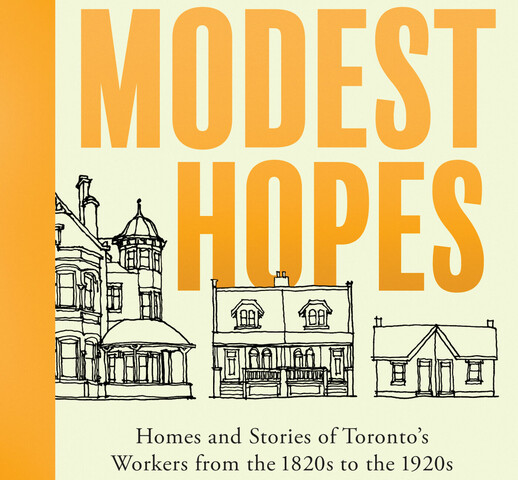
Modest Hopes
Modest Hopes
The cover of “Modest Hopes”, 2022 Heritage Toronto Book Nominee.
Authors: Don Loucks and Leslie Valpy
Publisher: Dundurn Press
Through the stories of eight families who lived in Toronto workers’ cottages between 1820 and 1920, authors Don Loucks and Leslie Valpy bring an important but forgotten part of the Toronto narrative to life in Modest Hopes. They illuminate the development of Toronto’s working-class neighbourhoods, such as Leslieville, Corktown, and others, and explain the designs and architectural antecedents of these undervalued heritage properties.
Today, Toronto’s workers’ cottages are often characterized as being small, cramped, poorly built, and in need of modernization or even demolition. But for the workers and their families who originally lived in them from the 1820s to the 1920s, these houses were far from modest. Many had been driven off their ancestral farms or had left the crowded conditions of tenements in their home cities abroad. Once in Toronto, many lived in unsanitary conditions in makeshift shantytowns or cramped shared houses in downtown neighbourhoods such as The Ward. To move to a self-contained cottage or rowhouse was the result of an unimaginably strong hope for the future and a commitment to family life.
Don Loucks is an architect, urban designer, and cultural heritage planner, with forty years of project experience. He is committed to environmental, economic, and cultural sustainability, and to preserving the variety of rich urban forms that contain the stories of our communities’ history. He lives in Toronto.
Leslie Valpy is a conservation practitioner, researcher, and writer, with a passion for built heritage, history, architecture, and conservation. Working with both intangible and tangible dimensions of heritage, she has participated in a range of projects throughout Ontario. She lives in Toronto.
